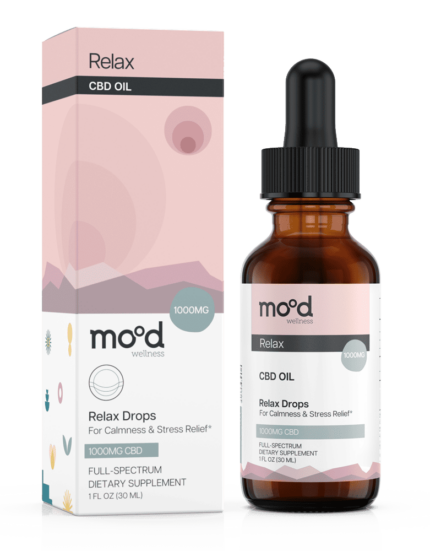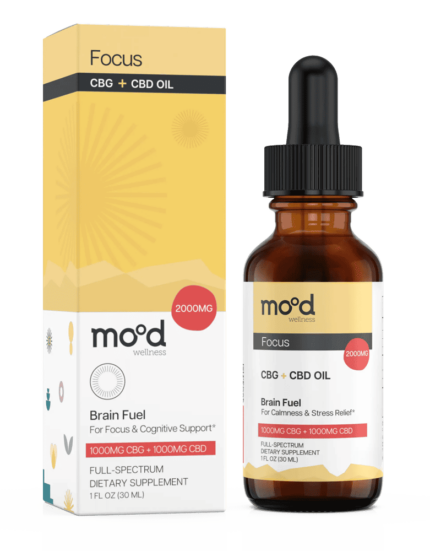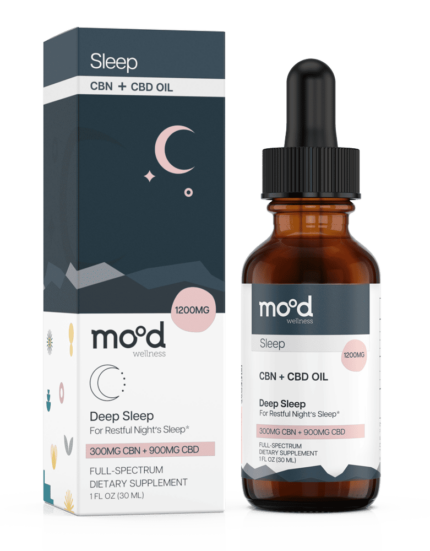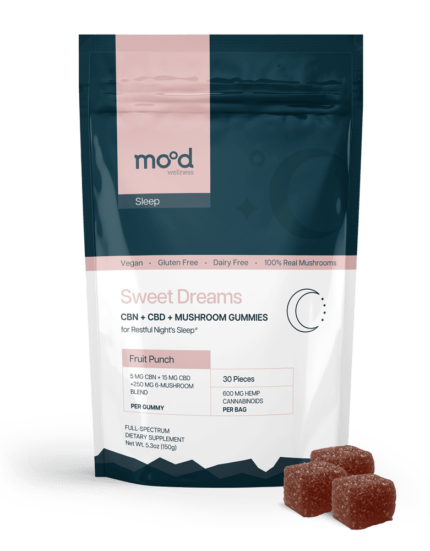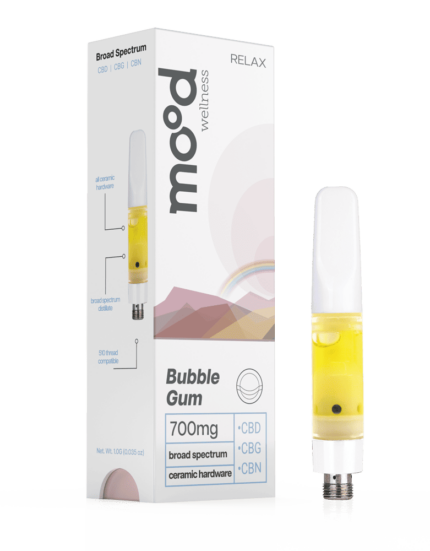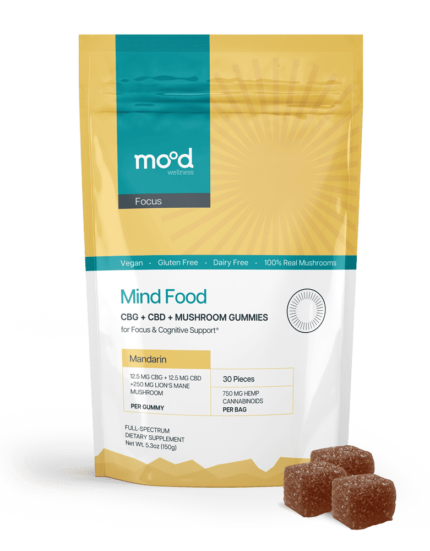In the search for restful slumber, many have explored various supplements, finding CBD and Melatonin at the forefront of options. Despite Melatonin’s long-standing popularity, emerging insights and personal experiences are increasingly highlighting that CBD may be a more effective and encompassing solution for sleep enhancement. This guide explores five persuasive reasons why CBD is emerging as the superior choice over Melatonin for individuals seeking not only improved sleep but enhanced overall well-being.

Understanding Melatonin
What is Melatonin?
Melatonin does more than just serve as a sleep supplement; it acts as a crucial hormone that plays a key role in regulating our sleep-wake cycle. The pineal gland produces Melatonin, making it an integral part of how our bodies align with natural sleep patterns. Its function goes beyond that of a simple sleep aid, embedding itself deeply within the mechanisms that synchronize our physiological processes with the circadian rhythms of the natural world.
This hormone’s importance in our sleep health cannot be overstated. By signaling the body when it’s time to rest, Melatonin directly influences our ability to fall asleep naturally and maintain a healthy sleep schedule. Its production increases with the onset of darkness, helping to prepare our body for sleep, and decreases as light appears, aiding our wakefulness. This natural ebb and flow of Melatonin production are essential for a restorative sleep cycle, making it a critical component of our overall well-being.
The Role of Melatonin in Sleep
-
- Natural Sleep Cycle Regulation: The primary function of Melatonin is to signal the body that it’s time to rest. By doing so, it plays a crucial role in maintaining our circadian rhythm, the internal clock that dictates our sleep patterns. This natural signaling is key to ensuring regular, restful sleep.
-
- Influence of Light on Production: Interestingly, the production of Melatonin is closely tied to light exposure. At night, as darkness falls, Melatonin levels increase, promoting sleep. Conversely, during daylight, these levels decrease, helping us stay awake and alert. Modern lifestyle factors, such as prolonged exposure to artificial light and irregular sleep schedules, can disrupt this natural rhythm, leading to sleep disturbances.
-
- Targeted Uses: Melatonin supplements are a common remedy for specific sleep issues like insomnia and jet lag. By emulating the effects of the natural hormone, these supplements aim to realign the body’s internal clock. However, their effectiveness is primarily in initiating sleep, and they may not address other underlying factors affecting sleep quality, such as anxiety or chronic pain.

Understanding CBD
What is CBD?
Cannabidiol (CBD), extracted from cannabis plants, has recently risen to prominence in the health and wellness sectors. Unlike THC (tetrahydrocannabinol), its more famous counterpart in cannabis, CBD does not produce a psychoactive effect, making it an appealing option for those seeking health benefits without the “high.”
CBD’s Interaction with the Body
-
- Engagement with the Endocannabinoid System: CBD’s interaction with the body’s endocannabinoid system (ECS) is where its potential lies. The ECS is vital in regulating various functions, including mood, appetite, pain sensation, and sleep. CBD’s influence on this system positions it as a potential aid for conditions like anxiety, pain, and insomnia, all of which can impede a good night’s sleep.
-
- Safety and Accessibility: Generally considered safe, CBD is legally available in various regions, particularly in forms derived from hemp. It comes in multiple formats such as oils, tinctures, capsules, and edibles, catering to different user preferences and needs. In contrast to Melatonin, which is narrowly focused on sleep, CBD’s interaction with the ECS enables it to address a broader spectrum of health issues, thus potentially offering more comprehensive benefits for sleep and overall well-being.
Five Reasons CBD Surpasses Melatonin for Sleep Enhancement
CBD derived from the cannabis plant, sets itself apart through its dynamic interaction with the body’s endocannabinoid system (ECS). This connection profoundly impacts mood, hunger, discomfort, and significantly, sleep regulation. With its non-psychoactive nature, CBD becomes a sought-after remedy for individuals aiming to harness the therapeutic advantages of cannabis, minus the intoxicating effects typically associated with THC.
Here are five compelling reasons why CBD surpasses Melatonin in enhancing sleep, offering a holistic and effective approach to improving not just nighttime rest but overall well-being.
1. Enhanced Sleep Quality and Circadian Rhythm Management
CBD’s influence extends beyond mere sleep induction to encompass the entire sleep-wake cycle. Research suggests that CBD can improve sleep quality, making it invaluable for people with insomnia or sleep apnea. By potentially regulating the circadian rhythm more holistically, CBD supports a natural sleep pattern, even in individuals with irregular schedules.
2. A Broad Spectrum of Health Benefits
CBD’s versatility shines in its wide array of health benefits. It has been lauded for its potential to reduce stress and depression, manage pain, and even offer neuroprotective properties. These benefits collectively contribute to better sleep quality by addressing the root causes of sleep disturbances.
3. Lower Dependency and Tolerance Risk
One of the significant advantages of CBD over traditional sleep aids, including Melatonin, is the minimal risk of tolerance and dependency. This aspect makes CBD a safer choice for long-term use, ensuring that users can maintain effective sleep support without needing to continually increase the dosage.
4. Pain Management and Anti-Inflammatory Effects
CBD has shown promise in managing chronic pain and reducing inflammation, addressing two common culprits of sleep disruption. By alleviating these issues, CBD not only improves sleep quality but also enhances overall well-being.
5. Stress Reduction and Mental Well-being
Given the close relationship between stress and sleep quality, CBD’s ability to calm the mind plays a crucial role in its effectiveness as a sleep aid. By reducing stress, CBD helps facilitate a conducive environment for restful sleep.
Comparative Analysis: CBD vs. Melatonin
| Feature | CBD | Melatonin |
| Primary Function | Offers holistic health benefits, with a focus on improving sleep quality, reducing stress, managing pain, and potential neuroprotective effects. | Primarily promotes sleep induction by regulating the sleep-wake cycle and adjusting the body’s internal clock. |
| Mechanism of Action | Interacts with the endocannabinoid system to influence various bodily functions, including sleep. | Mimics the body’s natural hormone to signal it’s time for sleep, directly influencing the circadian rhythm. |
| Mental Health Benefits | Potential to alleviate symptoms of anxiety and depression, contributing to better sleep indirectly. | Limited impact on mental health issues beyond regulating sleep patterns. |
| Pain and Inflammation | Shown to be effective in managing chronic pain and reducing inflammation, thereby improving sleep quality. | Has no direct effect on pain or inflammation, which can be significant disruptors of sleep. |
| Neuroprotective Effects | Emerging research suggests CBD may offer neuroprotective benefits, potentially safeguarding against conditions like Alzheimer’s and Parkinson’s disease. | Research on neuroprotective effects is limited, with the primary focus being on sleep regulation. |
| Dependency and Tolerance | Lower risk of dependency and tolerance, making it suitable for long-term use. | Potential for tolerance over time, which may require increasing doses for the same effectiveness. |
| Side Effects | Generally well-tolerated; some may experience mild side effects like dry mouth, fatigue, or changes in appetite. | May cause morning grogginess, dizziness, or headaches in some individuals. |
| Legal and Accessibility | Legal in many regions, especially when derived from hemp; widely available in various forms. | Over-the-counter availability; legal in many countries without prescription. |
| Broad Spectrum of Benefits | Addresses a broader range of health issues beyond sleep, including anxiety, pain, and inflammation. | Narrowly focused on sleep and circadian rhythm regulation, with less impact on other health concerns. |
Choosing the right CBD product for sleep
Selecting the right CBD product for sleep requires you to consider several factors to match your specific needs. The CBD market provides various options, such as oils, tinctures, capsules, edibles, and newer formulations that include CBD with CBN (Cannabinol).
For those specifically interested in the synergistic effects of CBD and CBN for mood enhancement and better sleep, exploring Mood Wellness’s range of CBN products can offer tailored solutions. Our carefully formulated products combine the calming properties of CBD with the sedative effects of CBN, aiming to provide a comprehensive approach to wellness and restful sleep. To discover more about how these products can fit into your wellness routine, visit our CBN products page. This selection caters to individuals seeking a natural approach to improve sleep quality and overall mood wellness.
Understanding Different Formats
-
- Oils and Tinctures: These are among the most popular forms of CBD, known for their quick absorption when used sublingually (under the tongue). They allow for precise dosing and fast action, making them ideal for those seeking immediate effects.
-
- Capsules: CBD capsules offer the convenience of consistent dosages and are preferred by individuals who are already accustomed to taking supplements or medications in pill form. They’re discreet and portable, though they may take longer to take effect compared to oils and tinctures.
-
- Edibles: Including gummies, chocolates, and beverages, edibles are a tasty and enjoyable way to consume CBD. They provide a slow release of CBD throughout the body over several hours, which can be beneficial for maintaining sleep throughout the night.
-
- Topicals: While not typically used for sleep, CBD-infused creams and lotions can be beneficial for relieving localized pain or discomfort that might hinder restful sleep.
Incorporating CBN for Enhanced Sleep
In addition to CBD, researchers have also recognized CBN (Cannabinol) for its potential to enhance sleep. Believed to act as a powerful sedative, CBN may amplify the effects of CBD when combined. Manufacturers specifically formulate products that blend CBD with CBN to more effectively target sleep issues, providing a potent solution for individuals grappling with insomnia or restless nights.
Safety and Interactions
It’s essential to consider the safety of CBD products, especially if you are taking other medications. CBD can interact with certain medications by affecting the liver enzymes responsible for drug metabolism. To ensure safety and avoid potential adverse interactions, consulting with a healthcare provider before starting any CBD regimen is strongly recommended.
Conclusion: 5 Reasons CBD Is Better Than Melatonin for Sleep
In conclusion, CBD offers a compelling alternative to Melatonin for sleep enhancement due to its broad-spectrum benefits and holistic approach to well-being. Here are five succinct reasons why CBD is often preferred:
-
- Comprehensive Sleep Regulation: CBD supports the entire sleep-wake cycle, unlike Melatonin, which mainly helps with sleep initiation.
-
- Multiple Health Benefits: CBD addresses various issues such as anxiety, pain, and inflammation, contributing to improved sleep quality.
-
- Lower Dependency Risk: There’s minimal risk of developing tolerance or dependency on CBD, making it suitable for long-term use.
-
- Pain and Inflammation Relief: CBD effectively manages pain and inflammation, both of which can disrupt sleep.
-
- Stress Reduction: CBD’s calming effects on the mind and body promote a more restful sleep environment.
CBD’s versatility in promoting not just better sleep, but also overall health, positions it as a superior choice for those looking to enhance their sleep quality naturally.
